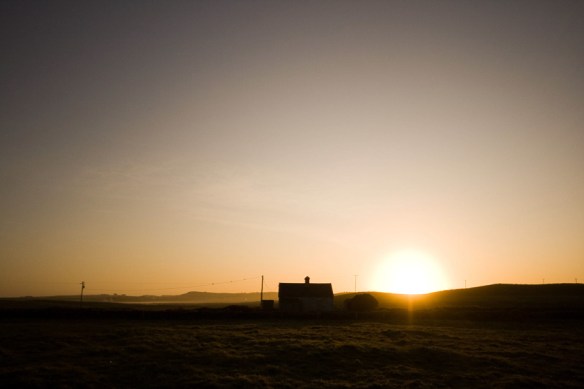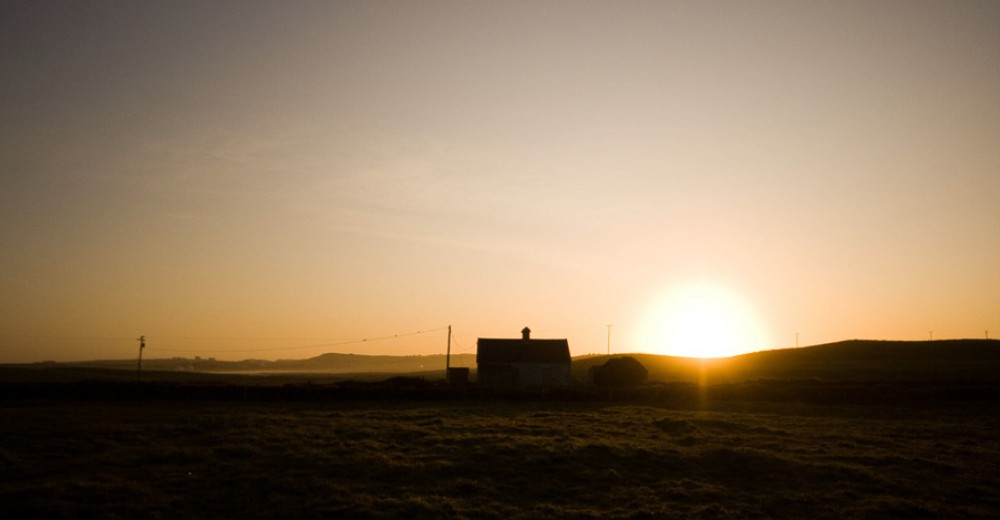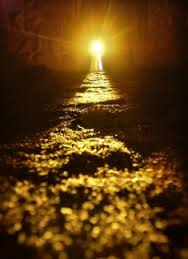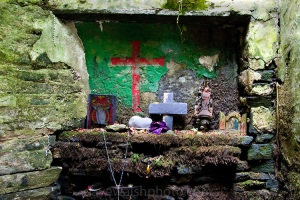‘What did it mean to her, this thing she called life? Oh, it was very queer. Here was So-and-so in South Kensington; someone up in Bayswater; and somebody else, say, in Mayfair. And she felt quite continuously a sense of their existence; and she felt what a waste; and she felt what a pity; and she felt if only they could be brought together; so she did it. And it was an offering; to combine, to create; but to whom?’
Virginia Woolf- Mrs. Dalloway
You walk the dog three times a day to get out of the house. You pass plenty on the lanes. Lockdown has fellas out of their houses you never saw before. It feels like those summers when you were young and people were everywhere, talking over hedges and shouting out car windows and tinkering in each other’s fields and lives. You realise there are neighbours in the houses that surround you. You pass them on the road and you want to stop but you’ve forgotten how to talk in the old way. Instead, you follow them home in your head. That’s the new thing now. You wonder about them, the things they say to each other in their kitchens and the secrets they keep and the dreams that haunt them at night. You watch them and you make up lives for them because the ones they are leading aren’t enough.
As you come round the blind bend you see an old Astra with a Limerick reg pulled in on the verge of the road. You get closer and see a blonde-haired woman in the driver’s seat. There’s nobody else in the car. She’s on the phone. It looks like she’s crying. You know you shouldn’t be staring but you can’t help it. She’s looking straight ahead as she talks but suddenly she turns and catches your eye there’s an unguarded moment when you both see right into each other, just a moment, because you pull away and walk quickly past the car with your gaze on the road.
You take the moment and what you saw with you. There was something in her face. Was it guilt? Oh what have you done? Let’s be having you. You pass the field with the old metal bath and the field with the standing stone and the one with the rushes and you watch the dog chase a snipe, every muscle in her body engaged in the pursuit of this thing. You see her do this every morning and every morning you know for sure she hasn’t a hope of catching the bird but you keep watching and she keeps chasing.
You round the blind bend and see three black bags of rubbish dumped in the next field, white butterflies dancing around the mess. You think of the woman in the car. You know she threw them there. As you put one foot in front of the other it comes to you that she is a single mum whose partner ran off and that she can’t afford to pay the bin charges, so in the night, when finally the noise of Grand Theft Auto subsides from their room, she knows her boys are asleep and she loads her rubbish into the boot of her partner’s car that’s left rusting in the under-ground car-park. She can’t afford the insurance or tax on it but she takes the chance she won’t meet any guards out this time of night. She’s been doing this every couple of weeks since lockdown and when she first started, she said to herself that she would just drive outside the city and find a field and dump it there, but once she got in the car and started driving she couldn’t stop. She drove all the way to the coast, to a seaside town and stopped there in the car-park and got out and walked the dark beach breathing in the ocean and soothed by the sounds of water she couldn’t see.
She got back into the car and drove into the hills behind the town and found a little bend on a small road with grass growing up the middle of it with no houses or life in sight and she grabbed her rubbish and flung it over the ditch into the field. On her way home she felt new and free. It was getting bright as she approached the city and she looked in the rear-view mirror and said to herself that things were possible outside the life she had at the moment. She feels guilty about the cost of the petrol but she needs to have one thing for herself, so every two weeks she takes off with the rubbish and she says to herself that she could be spending it on worse things like other mothers she knew who drank and smoked and popped pills to escape.
You pass the farm at the top of your road. The farmer that lives here is a bachelor. He’s in his fifties. You’ve been in his house once. You called up to borrow a ladder when you moved to the area first. He made you a coffee and apologised because he had no sugar. Doesn’t keep it in the house, he said. He had a jar of fresh honey and gave you a spoon of that to sweeten your coffee. Seen too many farmers my age let themselves go, he said, too fond of the pan, he said, old greasy rashers and sausages and fried eggs, fried bread and potatoes, everything fried. Fried food, fried heart, he said. Got to look after the ticker. And the place of his was kept lovely, not like a man’s house at all, nothing fancy, lino down on the floors, but clean and smelling nice and in his sitting room on one wall he had the sacred heart and on the other a whole shelf of movies and when you looked through them you saw Cinema Paradiso and Casablanca and Dr. Zhivago and Gone With the Wind and he wasn’t one bit shy and told you that Casablanca was his favourite movie of all times and that he’d seen it over a hundred times and told me then that he watched a movie every Sunday night and to call up anytime if you wanted to get a bit of peace and quiet from the kids. But you never did, and now you can’t in case you give each other something more than company and you often look up the hill to his front window on Sunday nights and see the purple wash of the movie splash gently over the sitting room walls.
You’re not sure if it’s his land but you know that he wouldn’t like it at all if he found a load of rubbish in one of his fields, the bags pecked open by crows and shite strewn all over the grass. Probably he’d curse under his breadth then and go about cleaning it up and forget about it until two weeks later when he finds another bag and two weeks later again and now it really begins to bother him and he goes through the bags and tries to find something that would identify the perpetrator, but there’s nothing only Findus Crispy Pancakes and Hula Hoop wrappers, not even a shopping receipt. He lies awake at night thinking about it and waits for the two weeks to come around again and sits in the ditch in the dark, waiting for the car to pull up. The headlights sear the hedgerow and the car door slaps and he waits until he sees the arc of the bags like dark clouds falling out of the sky and he jumps out of the ditch and all his anger boils over and he lets out a roar and grabs the figure in the shadows and is ready to clatter whoever it is when she lets out a cry and he gets an awful shock that he nearly hit a woman as a woman was the last thing he expected to encounter on the side of his hill in the dark of this night.
Later, back in his kitchen, she sits at his table and he puts a mug of tea in front of her and offers her some honey to sweeten it. He stands by the sink. He sees the worry in her face and chances a smile. She smiles back and stirs the honey into her tea even and though there is silence now and I can hear the clock ticking between them, I know one of them will say something soon but that’s not my concern because I’ve introduced them and it’s up to them after this.



